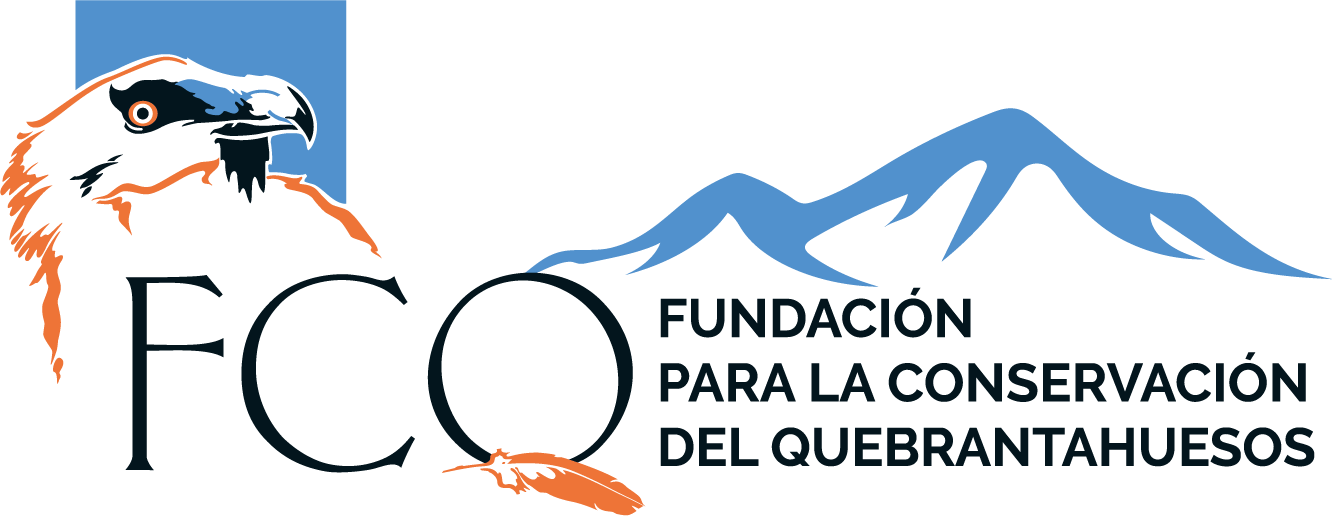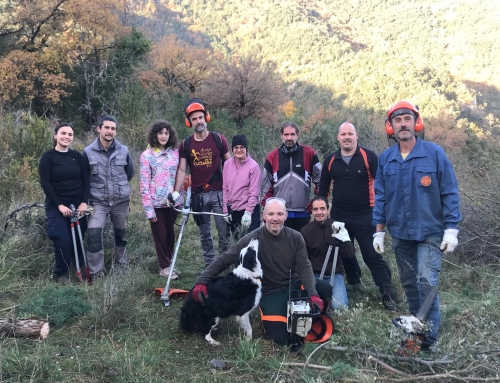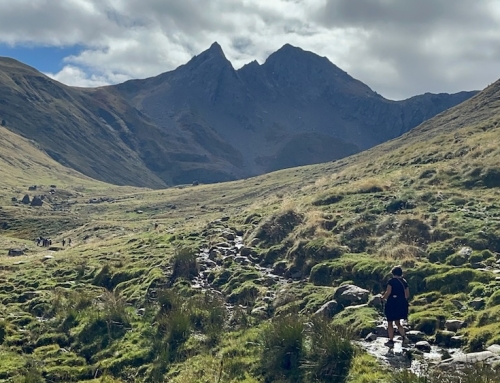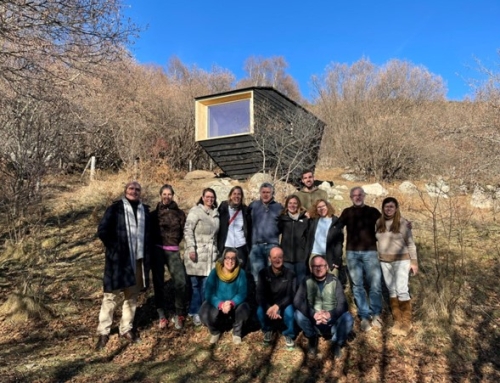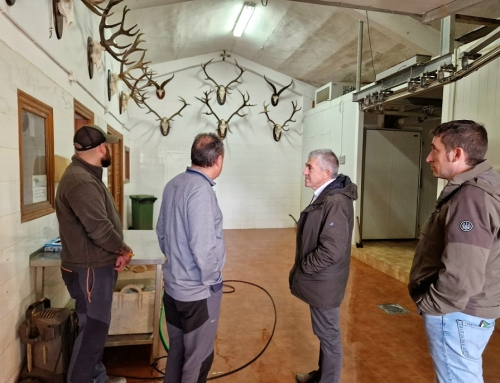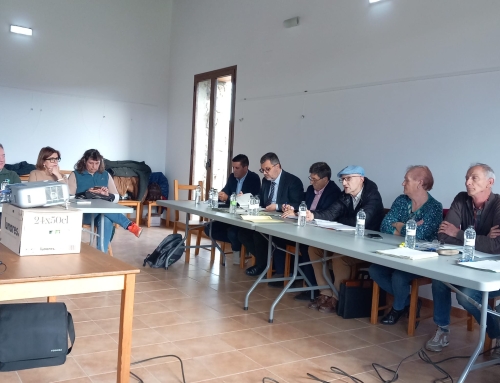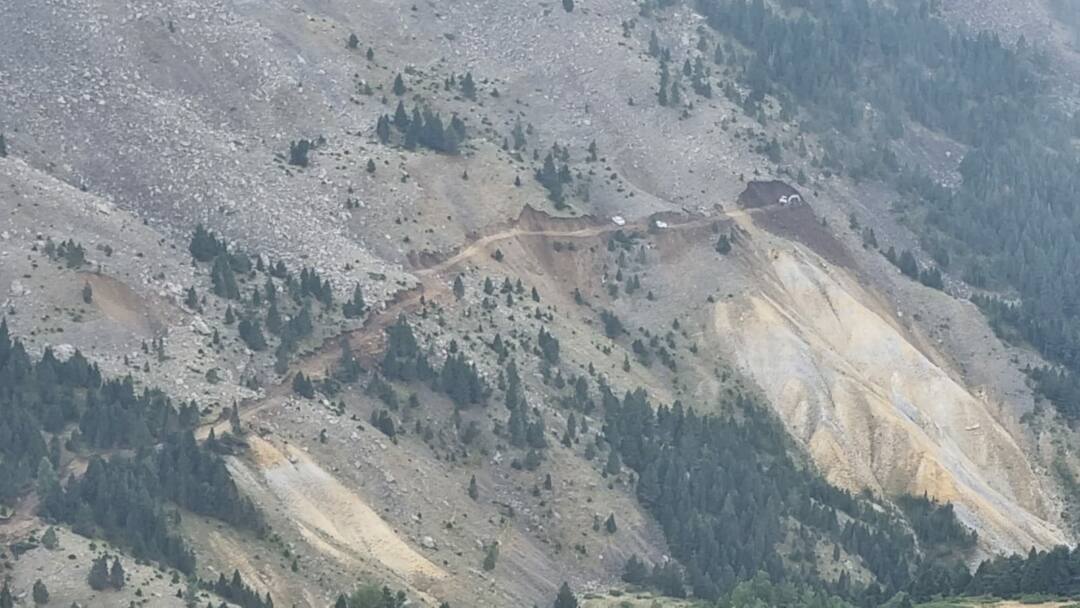
The destruction of capercaillie habitat in the Pyrenees, financed with funds for their conservation.
Ecologists in Action, the Platform in Defense of the Mountains of Aragon (PDMA), Friends of the Earth Aragon and ANSAR denounce the construction of a new penetration road in the Aragonese Pyrenees as a supposed compensatory measure for the conservation of the capercaillie.
The Cruz de Guardia pass between the municipalities of Tella-Sin and Bielsa (Huesca) is witnessing a controversial action, the construction of a track to facilitate road access between the pass and the north face of Mount Marista, with the supposed purpose of facilitating its use for livestock grazing in an area that has been naturally reforested. Already in 2023 a first section of 1,600 meters was built to access a watering place and improve an existing forest trail. This time it is apparently a compensatory measure implemented by the Department of Environment and Tourism for the Commonwealth of Owners of Sin, Señes and Serveto, for the wood extracted from their forests in the work to improve the habitat of the grouse, which extends the aforementioned track to a remote point on the north side of this mountain. For Ecologists in Action Aragon, PDMA, Friends of the Earth Aragon and ANSAR this is an action with serious landscape and environmental impact, in an unstable and dangerous slope because it is a mountain rocky area and certainly a bad precedent as a compensatory measure in a project that aims to conserve a species such as the grouse, affected by climate change and that unfortunately seems to have its days numbered. We are aware that in other compensatory actions, clearing of vegetation, construction of water troughs or repair of infrastructures such as bridges have been carried out as compensatory measures, but destroying nature and creating penetration routes in remote areas, does not comply with the allocation principles of the European Recovery and Resilience Funds. In the protocols for the allocation of Recovery and Resilience Mechanism Funds it is established… “the DNSH principle which implies that all investments and reforms must justify that they do not lead to significant harm to any of the six environmental objectives defined by the EU which are:
- Climate change mitigation
- Adaptation to climate change
- Sustainable use and protection of water and marine resources.
- Transition to a circular economy.
- Pollution prevention and control.
- Protection and recovery of biodiversity and ecosystems”.
Consequently, this action is identified as a violation of these principles, more shocking if possible because it is an action linked to the conservation of an endangered species, such as the capercaillie and that creates severe affections to among other species, the sergeant that establishes areas of reproduction and summer rest on the north face of this mountain. Recall that the auditors of the European Union in a recently published report are questioning the degree of implementation of the European Funds in terms of their contribution to national plans associated with the ecological transition. They have found shortcomings in the milestones and targets for climate actions, in the reporting of actual expenditure and in the environmental performance of some countries, including Spain. It should be noted that in the French Pyrenees alone the network of forest tracks with road access exceeds 26,200 kilometers, without specific data for the Spanish southern slope, which is possibly greater than this. Ecologists in Action comment: “In the end there is no corner without noise from the engines and the passage of people facilitating through these tracks affections to the natural environment by anthropization of the same”. From a technical and scientific point of view, we do not find justification for opening new penetration routes in areas where grouse are present, to improve their habitat, we understand that it is a disproportionate relationship between the objective of benefiting their conservation and the damage to be produced. This connection of tracks would be a serious conservation mistake, as it would make possible a new penetration route and other future tourist/leisure uses that would be detrimental to the conservation of the capercaillie and other species by facilitating transit in a vital area of maximum tranquility (hunting, mushroom picking, cycling, hiking or others). The environmental organization and the PDMA announce mobilizations and a complaint to the Environmental Prosecutor’s Office and the European Commission for the misuse of these funds.
Source:
